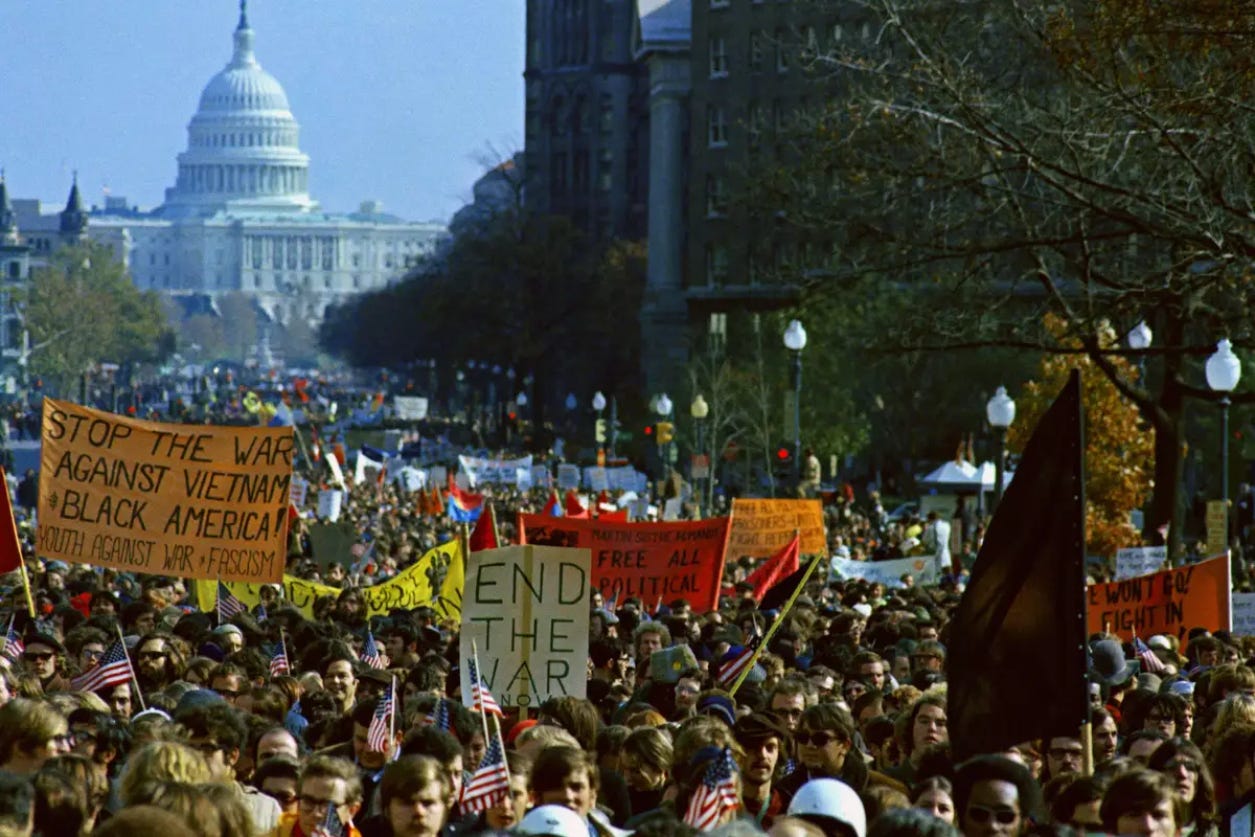"We Didn’t Start the Fire" - Baby Boomer Recognition Day
The Incalculable Debt the Rest of Us Owe the Baby Boomers
“We didn’t start the fire. It was always burning, since the world’s been turning. We didn’t start the fire. No, we didn’t light it, but we tried to fight it.” Billy Joel, We Didn’t Start the Fire.
My mother Bernice was 13 when she, along with my uncle Willie James (15) and my aunt Pat (11) all marched through the streets of Birmingham, AL in that legendary confrontation with Bull Connor’s police dogs and fire hoses and where they, along with Martin Luther King and others, were arrested. At the same time, William Martin Joel, known the world over as Billy Joel, the Piano Man, was already well on his path to becoming one of the greatest musicians of all time.
Both Joel and my mother were born in 1949, just two months apart. And despite being male and female, northerner and southerner and identifying as white and black respectively, they’d be shaped by all the same societal forces from Vietnam to I Love Lucy, from Brown v. Board to American Bandstand.
Joel was 40 when he penned Grammy-nominated We Didn’t Start the Fire, essentially about the era that shaped and formed his generation. And given that his father Howard (originally Helmut) was born in Nuremberg, Germany to a Jewish family, one that escaped persecution by immigrating to Switzerland, then to the United States via Cuba, he had first-hand knowledge of the kinds of infernos that, if not fought, will burn everything down. In a style that’s half sung and half rap, he says:
“Einstein, James Dean, Brooklyn's got a winning team, Davy Crockett, Peter Pan, Elvis Presley, Disneyland.
Bardot, Budapest, Alabama, Khrushchev. Princess Grace, Peyton Place, Trouble in the Suez…”
Before jumping into the chorus:
“We didn’t start the fire. It was always burning, since the world’s been turning. We didn’t start the fire. No, we didn’t light it, but we tried to fight it.”
He continues through all manner of cultural and societal events in rapid-fire succession from the year of his and Bernice’s birth onward:
“Pope Paul, Malcolm X, British Politician sex. J.F.K. blown away. What else do I have to say?” “We didn’t start the fire. It was always burning, since the world’s been turning. We didn’t start the fire. No, we didn’t light it, but we tried to fight it.”
The “we” that he’s referencing repeatedly is the massive Baby Boomer generation that he and so many others are part of. His point is that while we often think that the craziness and injustices of our era started in our time, they actually didn’t. Nor did they just erupt spontaneously. Each one is a fire someone started.
And that’s not all. Despite how those holding the power tried to cast his generation as the problem, calling them everything from “anti-American” to “draft-dodgers”, he makes it clear that they weren’t the arsonists who set society ablaze. “No, we didn’t light it,” he declared, “But we tried to fight it.”
And that’s exactly what they did. From sit-in protestors to school integrators, from civil rights marchers to women’s liberationists, from the first Rainbow Coalition and the Stonewall uprising to Freedom Summer and the Summer of Love, from Battle of the Sexes to the first Pride march, so many cultural shifts that are now part of America’s new normal occurred because of them.
At 76 million, the Baby Boomer generation encompasses Americans born between the summer of 1946 and the summer of 1964, give or take a few years, depending on who you ask. They’re the largest cohort ever born, almost twice as large as the world-changing, so-called Silent Generation, which was anything but, and that included everyone from JFK and Martin Luther King to Rosa Parks and Harvey Milk.
They’re also different from the Greatest Generation, of which my grandparents and Bernice’s parents were a part, and who lived through everything from the Boll Weevil infestation and the Dust Bowl to the Great Depression and World War II. The Boomers were their children and grandchildren, their protégés and legacy-bearers. They’re what came after, and they, simply by being who they were, changed everything.
Take, my mother. She went on to do everything from attending the March on Washington to being a Motown backup singer, from becoming one of Pratt & Whitney’s female airplane assemblers to joining the Black Panthers. But Bernice wasn’t the exception, she was the rule. The amazing thing about the Baby Boomers is that it was a bottom-up movement. They started remaking our society long before they were even old enough to vote, and that became their way of life.
For most, changing the world wasn’t their vocation, it was their life mission, one that they accomplished through whatever opportunities life afforded them, whether business or entertainment, politics or farming. They fought all the way to the Supreme Court to be able to marry the people they loved and they were the first birth cohort where their common interests as a generation overpowered loyalty to one’s racial grouping or even to the idea of “America – right or wrong.”
Today, August 17, is Baby Boomers Recognition Day, so make sure to tell the Boomers in your life, “Thank you for giving us a better world.” Because they did. They didn’t start the fire. But they dedicated their lives to fighting it.




